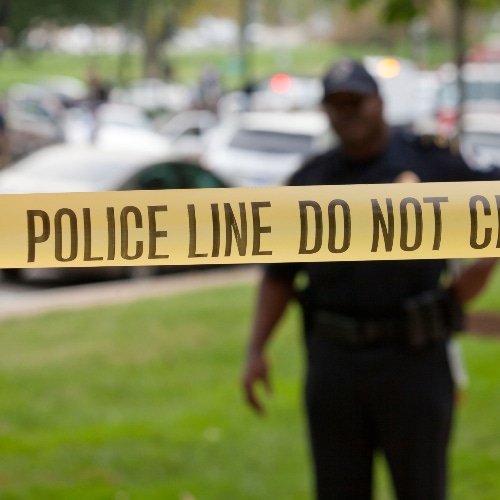T-Mobile: AT&T's FirstNet 'has not fulfilled all of its promises'
As T-Mobile targets the public-safety market, the company is urging the FCC to require FirstNet to disclose details about its ongoing relationship with AT&T.

T-Mobile is looking to land some punches on AT&T's burgeoning public-safety business by calling in the ref.
The company told the FCC that it should require FirstNet to disclose details about its ongoing relationship with AT&T. T-Mobile also told the commission that it should make clear that "FirstNet must provide interoperability that ensures all public safety users are able to communicate with one another during times of emergency."
At issue is a renewal of the authorization for the First Responder Network Authority (FirstNet) to operate a nationwide network for public-safety users like police and firefighters. FirstNet is an independent agency within the US Department of Commerce's National Telecommunications and Information Administration (NTIA). The agency traces its origins to Congressional responses to the communications trouble first responders encountered during the September 11, 2001, terrorist attacks on New York City.
In 2017, AT&T won the contract to build out FirstNet's 20MHz of spectrum in the 700MHz band (Band 14). To do that, AT&T is installing FirstNet 700MHz transmitters on its towers and on the towers of some supporting partner carriers.
Both FirstNet's customers and AT&T's commercial customers have access to FirstNet's spectrum as well as AT&T's other spectrum bands. However, FirstNet's customers receive priority access – meaning, they get first dibs on any available network capacity in an emergency. As AT&T passes FirstNet's buildout goals, the carrier receives portions of Congress' $6.5 billion FirstNet allotment.
Figure 1:  (Source: B Christopher/Alamy Stock Photo)
(Source: B Christopher/Alamy Stock Photo)
"While Congress' intent was laudable, FirstNet has not fulfilled all of its promises to the public safety community and the American public as required," T-Mobile argued.
Before the FCC re-authorizes FirstNet and its deal with AT&T, T-Mobile said it should "require FirstNet to fully and transparently disclose more details about its relationship with AT&T, the entities it is permitting to employ the NPSBN [National Public Safety Broadband Network], and the equipment used by its network partners."
An ongoing battle
T-Mobile is fighting FirstNet and AT&T in the marketplace as well as within the FCC. Following its merger with Sprint, T-Mobile has been working to entice a wide range of customers to its newly expanded 5G network. In the enterprise market, T-Mobile hopes to double its market share from around 10% today to 20% by 2025.
Along those lines, T-Mobile has developed pricing plans and services specific to the public-safety market, including its Connecting Heroes program and Wireless Priority Service (WPS).
T-Mobile isn't the only carrier feeling the heat from AT&T and FirstNet. Verizon last year introduced its Frontline brand in an apparent attempt to make it clear that it too offers pricing and services specific to the public-safety segment.
AT&T, meantime, has repeatedly touted its progress with FirstNet. At the beginning of this year, FirstNet said it counts more than 19,500 public-safety agencies and organizations, and more than 3 million connections, on its AT&T network. In AT&T's most recent quarter, the carrier said that figure had increased by 319,000 connections.
"FirstNet has been really strong for us," AT&T CEO John Stankey said in April.
Related posts:
— Mike Dano, Editorial Director, 5G & Mobile Strategies, Light Reading | @mikeddano
About the Author(s)
You May Also Like




_International_Software_Products.jpeg?width=300&auto=webp&quality=80&disable=upscale)






